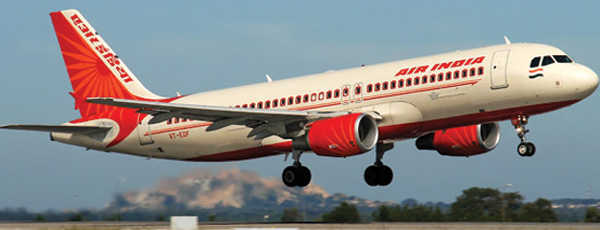
Girja Shankar Kaura
Tribune News Service
New Delhi, January 29
The government had recently announced major relaxation in FDI norms for the aviation sector by allowing 100% FDI into Indian airline operators under the automatic route. This announcement came even as the process is underway for selling a stake in national carrier Air India.
As per the earlier policy, foreign airlines were allowed to invest under government approval route in Indian companies operating scheduled and non-scheduled air transport services, up to the limit of 49% of their paid-up capital.
However, the provision was not applicable to Air India, thereby implying that foreign airlines could not invest in Air India.
Prime Minister Modi has time and again emphasised that aviation sector is crucial for the country’s development and the latest move would allow the national carrier to move forward in a positive manner while allowing the majority stake to stay with the government.
This move would allow disinvestment in the national carrier more lucrative for the buyers, especially as the government plans to sell various arms of Air India to separate entities and as separate entities.
And the Budget for the FY 2018-19 could well reflect a major sum in the government’s earnings from the sale of stake in Air India. The government will invite expressions of interest from those interested in buying state-owned Air India Ltd, after the Budget presentation and hope to seal the deal by the end of the year. The change in FDI policy will go a long way in reflecting a good sum of money coming into its coffers from the sale of the national carrier.
There has been a constant increase in the inflow of foreign tourists into India and the International Air Transport Association (IATA) which represents 260 airlines, that have a share of 83% of global air traffic, highlighted that double-digit growth of India’s domestic air traffic (recorded around 20%) has been due to significant increase in service frequencies with the entry of new airlines in India.
The government has also announced a big bang regional connectivity scheme —Ude Desh ka Aam Aadmi (UDAN) — to connect unconnected cities in India through generating a cess on other domestic flights, which has emerged as a major success.
After the success of UDAN 1, the government earlier in the week also announced successful bids for the second round of UDAN. As many as 73 underserved and unserved airports and helipads would be connected under the phase 2 of the regional connectivity scheme.
Of the 90 proposals awarded to provide flight connectivity to more than 300 regional routes, Interglobe Aviation, the parent firm of IndiGo, was awarded a maximum of 20 proposals followed by SpiceJet with 17. Jet Airways won four proposals.
The scheme will provide around 26.5 lakh seats per annum that will be covered with an airfare cap of Rs 2,500/hour of flying.
As such there would be a major allocation in the Union Budget for making this scheme a further success.
FDI in aviation does not mean FDI exclusively in “airlines”, but it also means FDI in developing aviation infrastructure and strengthening avionics.
Industry watchers say Maintenance, Repair and Overhaul (MRO) industry does play a pivotal role in this sector. MRO industry is engaged in the business of providing engineering support to the local airline companies by undertaking repair and maintenance of aircraft and related components.
Industry body Ficci has recommended that zero rating be prescribed for the Indian aviation MRO industry under the GST regime in the upcoming Union Budget.
“The prevailing archaic rules continue to allow import of such aviation MRO services from foreign-based MROs on duty/tax-free basis, while Indian MRO companies are required to conform to the tax/duty regime, thereby increasing the cost of the same services by Indian MRO companies by 20% to 25%,” says Ficci.
In the last Union Budget, the Civil Aviation Ministry received a substantial increase of over 22% in budgetary allocation at Rs 5,167.60 crore for the next financial year in which a good chunk at Rs 1,800 crore was for Air India.
National airports operator AAI was allocated Rs 2,543 crore, apart from a budgetary support of Rs 100 crore. There could be a substantial increase in this as government goes ahead with developing and revamping new airports as part of its UDAN scheme.



























